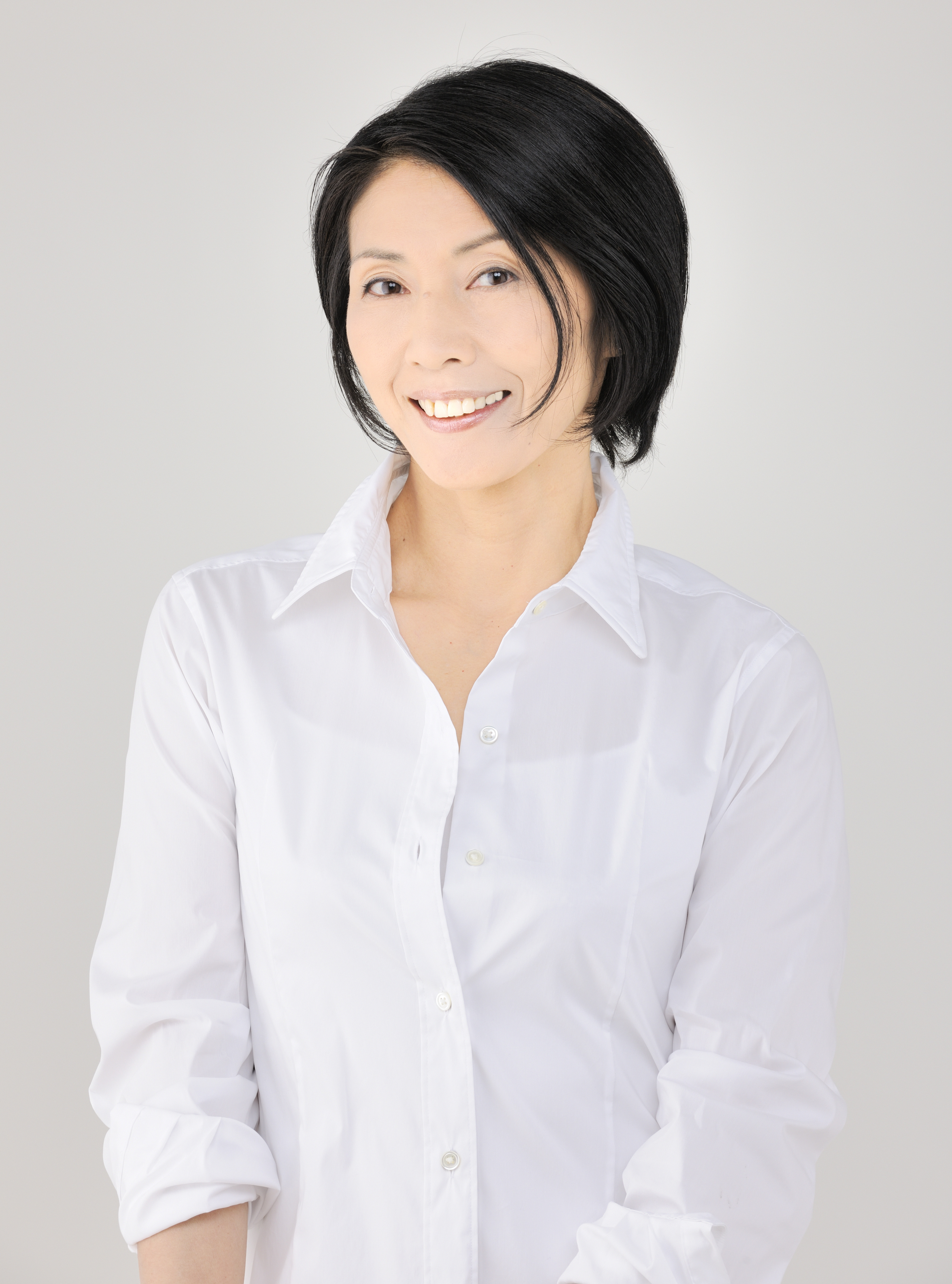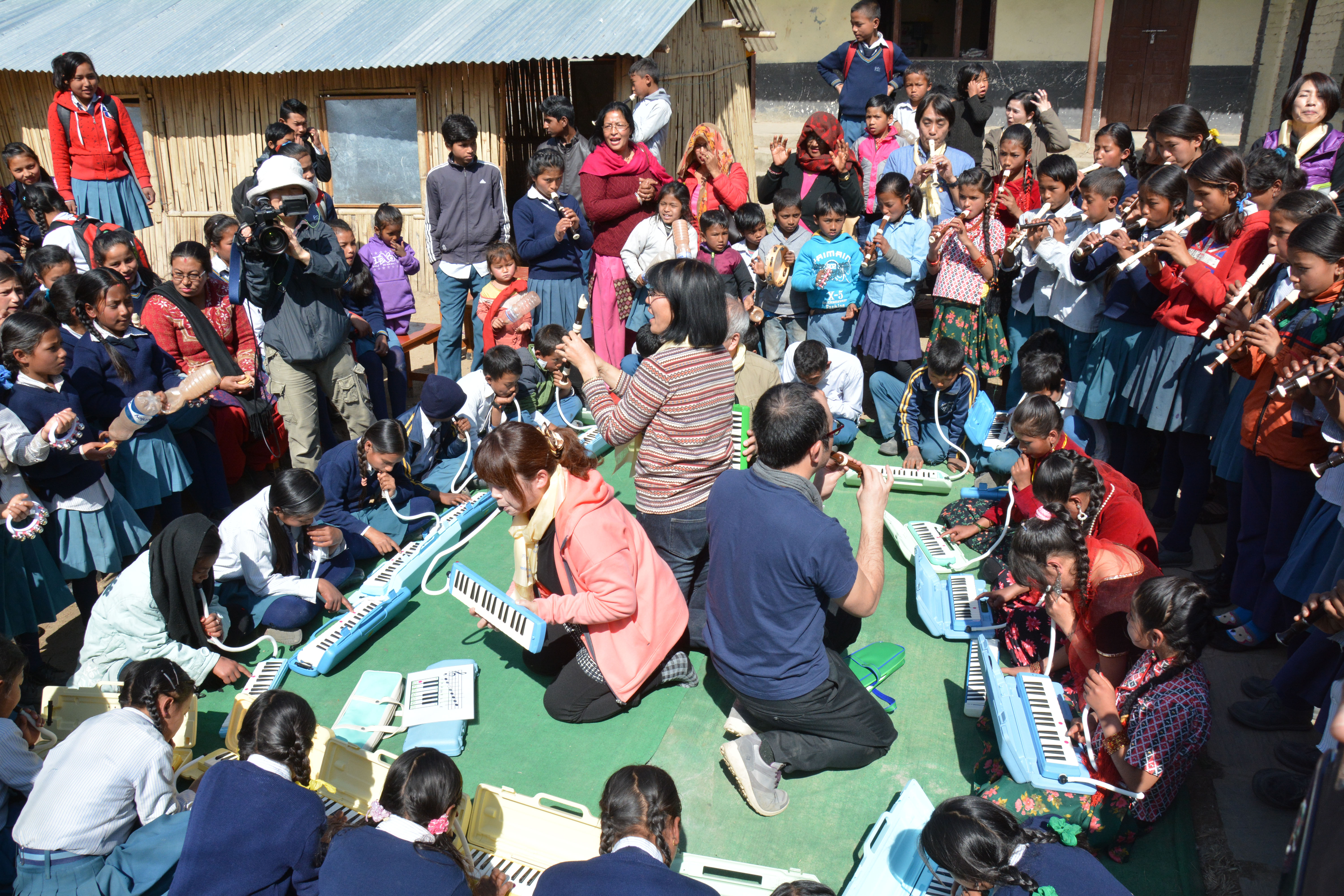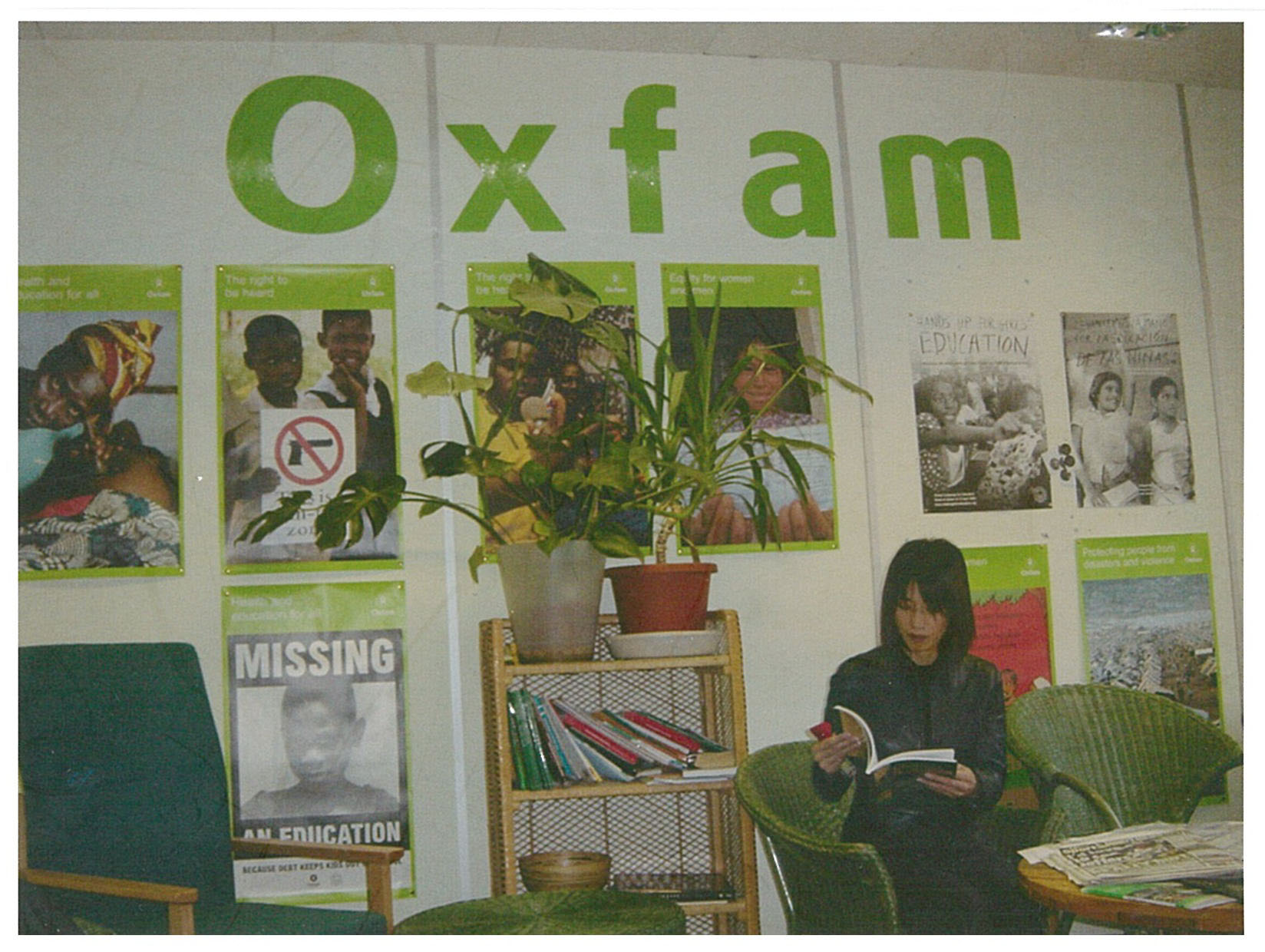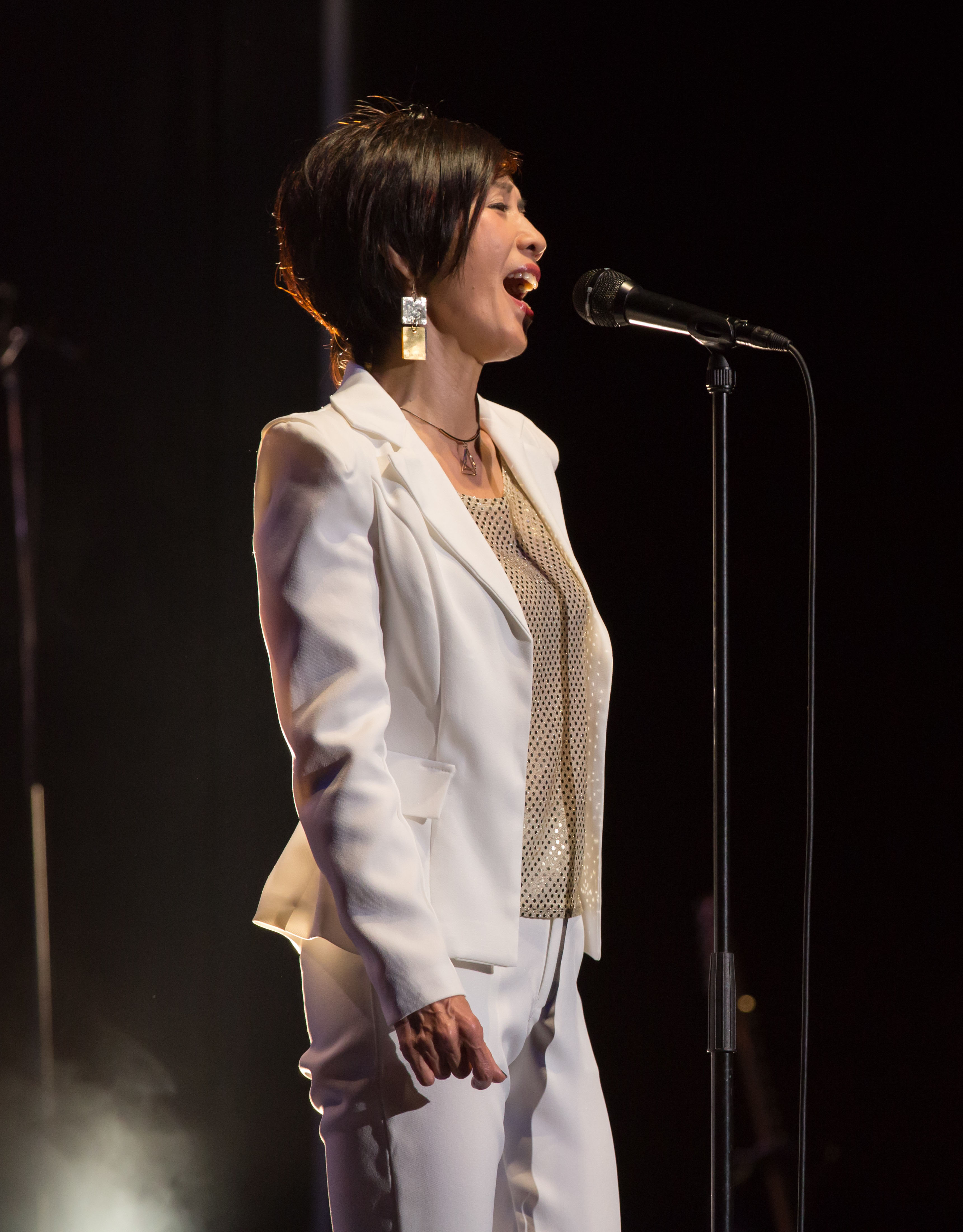- Main page
- Interviews
Singer turns philanthropist
March 21, 2017
By Chiho Iuchi
Special to The Japan Times
"I've come the long way round and often made side trips on the way, but now I realize that every step I took was to arrive here," said singer-songwriter Mayo Shono, who represents the non-profit organization Musicians Without Borders.
Singer gave up study

Portrait of Mayo Shono
REFRAIN
Surprisingly for a healthy looking woman today, Shono was born frail and has been repeatedly hospitalized since her childhood. But the weakness taught her to pay attention to her physical condition, especially as a singer. Also, the hospitalizations have given her time to read and ponder.
"As a child, I pored over a copy of 'Pollyanna' that somebody gave me as a get-well-soon gift. Pollyanna's robust optimism really inspired me to be quite a positive patient," Shono said, referring to Eleanor H. Porter's best-selling novel.
Thanks to the hospital treatment and good teachers at school, Shono's health improved and she became more assertive and came out of her shell during her high school days. She immersed herself in a contemporary folk music group that actively performed outside the school. Her enthusiasm for music got the better of her. She failed the university entrance exams and eventually turned her back on education.
After two years training and performing as a singer, at 20 she took on the Folk Music Festival as her final challenge. The result was the grand prize at the Kansai Shikoku regional competition. Although she did not win at the final nationwide level, a recording company approached her to make an album.
"Instead of the final being my swansong, the record deal put me on the start line as a professional singer," Shono said.
At the same time as the release off her debut album, she got married and moved to Tokyo.
"I was lucky to start my career as a young wife in a family," Shono recounted. "I learned a lot from my mother-in-law. My basic approach to life was to keep going no matter what happens."
Two years later her fifth LP came out featuring the track "Tonde Isutanburu (Fly to Istanbul)," which became a big hit in 1978. For the first and last time, Shono participated in NHK's annual year-end program "Kohaku Utagassen" (a singing competition between male and female artists) in which the top singers appear.
Around-the-world journey
At the height of her popularity, Shono set off on a journey around the world with her husband in 1980.
"Originally, we heard about an 80-day around-the-world ticket and were attracted by the idea of taking a three-month vacation," Shono said.
By the time of their departure, after finishing all the scheduled work, however, the plan had become an 18-month journey, flying from Japan to Europe, stopping over in Bangkok, Kolkata, Mumbai, Moscow and Amsterdam.
Prior to the Internet era, it was much harder to search for and find information, but the most useful answers often came from conversations with people.

Children enjoy playing music in Nepal with the instruments delivered by Musicians Without Borders, an NPO established by Shono (upper right).
REFRAIN
"As non-native English speakers, we tried to understand each other in broken English and a smile," Shono said. "Also, I tried to learn and use the basic greetings of the place, so that we could have better communication with local residents."
Everywhere people live, there is an interesting culture, but among the highlights for her were the natural landscapes of the savanna.
"Against the backdrop of the sun, red and very large, dipping below the horizon, we saw the silhouette of giraffe family walking very slowly right in front of our eyes," Shono described. "It was beyond words. I was overwhelmed and felt like my small concerns were nothing at all."
During the second half of the journey, they stayed in California, where she wrote a book about their journey, produced an album and gave birth to her first child.
"Our three products of this journey," she said with a laugh.
Eventually, they spent two years visiting 132 cities in 28 countries before returning to Japan. Discovering the world based on firsthand experience and observations of the naked truth, the journey was an important turning point for Shono.
Campus life at 45
Life continued with its twists and turns, including jobs, a second child, divorce and illness. Shono worked hard as a singer and more, while bringing up two daughters as a single mother.
In 1999, Shono was hospitalized again because of an accident and illness. The seriousness of her injury made her reflect on her way back.
"Life is really unpredictable. I wondered how much I had turned my dreams into reality," she said. She made a list in a notebook, writing down every dream she'd had since her childhood, such as becoming a florist, pilot or ballet dancer.
"Among such dreams was 'study at university,'" she said.
On the day she left the hospital, she read a newspaper at home and found an article about the newly established Faculty of Sustainability Studies at Hosei University.
"It was open to adult students!" recounted Shono, who immediately sent off for the necessary documents and applied for the entrance exam.
In 2000, Shono became a student at Hosei University. At the age of 45, she enjoyed her first campus life with a younger generation.

Shono joins volunteer activities with Oxfam in London in 2002.
REFRAIN
"In those days, adult students like me accounted for 20 percent of the faculty," Shono explained. "The classes involving adults were more lively and engaging because they'd come to the university at their own cost with clear objectives."
The faculty tackled environmental problems, including waste, global warming, energy and regional conflicts from various perspectives, such as history, the economy, politics, science and culture.
While busily studying and working as a singer, she formed an amateur music band with her classmates. Also, she organized the "Tsubasa music delivery" project to perform concerts at nursing homes for the elderly, as part of the practical element for her volunteer theory course.
Studying in London
One day during her sophomore year, she found an ad in a newspaper for a one-year study abroad scholarship sponsored by a staffing company.
"One of the conditions was that applicants had to be juniors the next year. 'Wow! Best match for me,' I thought," said Shono, who applied to make another dream on her list a reality.
In 2002, she found herself at Westminster University in London.
"I took notes in Japanese even though I listened to the English lectures. And I could not express myself in English," she said, describing her lack of confidence in English. Although it was very hard for her, "it taught me that everything is possible if you keep doing it until you make it work."
Outside campus, she participated in the volunteer activities at Oxfam, a major international non-governmental aid organization focused on the alleviation of global poverty. Also, she held a charity concert at St. James's Church, Piccadilly, London.
During her one-year study in London, she earned credits, including human geography and Third World study, and that led her to study for a master's degree.
Further at graduate school
After graduating from Hosei University in 2004, she studied development anthropology at Waseda University's Graduate School of Asia-Pacific Studies. Again, she had a hard time having discussions in English under professor Yasushi Kikuchi.
"I was the only Japanese in his seminar, which was composed of students from Cambodia, Myanmar and China. I asked for help from other Japanese students, who participated as observers," Shono explained.
Until the last moment, she had no idea what the subject of her master's thesis would be, but she suddenly realized that she had been committed to music for so many years.

Shono sings at a recent live performance.
REFRAIN
"We could provide assistance through music," she said.
In her thesis, titled "Empowerment of the Street Children in the Philippines through Music - Lullaby for the Angels on Manila Streets," Shono reported how the children changed through a rehabilitation program using music and argued how music could work to resolve conflicts.
Based on her field studies, including interviews with every child, she also produced a documentary film and composed an original theme song that she sang herself, as part of her thesis.
"Although my thesis was not very academic, the ideas to use visuals and sound received recognition," she said.
Musicians Without Borders
Before finishing her thesis, Shono established the NPO Musicians Without Borders in 2006, integrating her activities of the Tsubasa music delivery project, the annual "September Concert" to remember the 9/11 attacks and the donation of instruments to children around the world.
The NPO has donated instruments, and held charity concerts in the Philippines, Malaysia, Turkey, Indonesia, Kenya, Vietnam, Cambodia, Thailand, Sri Lanka, Myanmar and Nepal so far.
In the aftermath of the Great East Japan Earthquake and tsunami in 2011, Shono started the charity concert series "Sharing" to support the affected areas in the Tohoku region.
Since 2014, Shono has been teaching at her alma mater Hosei University. Every year at the Faculty of Sustainability Studies, she gives a special course on "Artists and Social Action."
"I want to create 'social art' as a new category," she said, describing her vision.
"While many people say that they want to do something, they don't, often using the excuse that it might not be possible or that they're not the right person for the job," Shono pointed out. "But the simple question is do it or don't do it. For me, what may be impossible is equal to what may be possible," she said.
"The most important thing is your own will."


